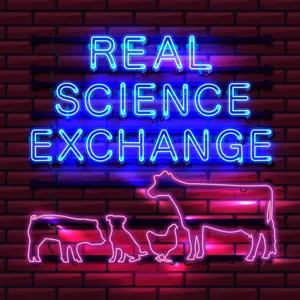Ep. 076: Raising Sheep and Goats – How They’re the Same and How They’re Different

***Last chance to complete our short survey by Tuesday, March 12th to be entered for a chance to win Standlee free product coupons and some fun Standlee swag – https://www.surveymonkey.com/r/btb2024podcast
Leave a rating/review on Apple – https://podcasts.apple.com/.../beyond-the-barn/id1541221306
Leave a rating on Spotify –https://open.spotify.com/show/3dmftQmwLKDQNueUcCJBZa
____________________________________
On this episode, co-host Katy Starr and guest expert Dr. Reid Redden explore the intricacies of raising sheep and goats, including:
- Differences and similarities between raising ruminant and non-ruminant species, particularly sheep and goats
- Why some sheep are actually deficient in copper because of the fear of “copper toxicity”
- The most common struggles sheep and goat owners face
Their discussion covers everything from the common myth that “goats will eat anything” to essential advice, making it a must-listen for anyone interested in entering the world of small-scale livestock ranching or even backyard sheep or goat ownership.
Have a topic idea or feedback to share? We want to connect with you! Email podcast@standlee.com
____________________________________
Scientific References:
~ 33:55 – Prairie Project go-pro video showing what plant species goats prefer to consume - https://www.facebook.com/watch/?v=2053746021633657
Connect with Dr. Reid Redden and AgriLife Extension and Research on:
- Facebook – https://www.facebook.com/TAMUSheepandGoats/ (@TAMUSheepandGoats)
- YouTube - https://www.youtube.com/@SheepandGoatsatTexasAgriLife (@SheepandGoatsatTexasAgriLife)
- Website - https://agrilife.org/agrilifesheepandgoat/
- ASI (American Sheep Industry) Research Update podcast – https://www.sheepusa.org/research-podcast
- 2024 Texas Sheep and Goat Expo in San Angelo, TX - https://agrilife.org/agrilifesheepandgoat/
- Love the podcast? Leave a rating and review on Apple – https://podcasts.apple.com/.../beyond-the-barn/id1541221306
- Leave a rating on Spotify – https://open.spotify.com/show/3dmftQmwLKDQNueUcCJBZa
- Have a topic idea or feedback to share? We want to connect with you! Email podcast@standlee.com
- Share our podcast and learn more about our co-hosts at our Beyond the Barn podcast page
- SUBSCRIBE to the Beyond the Barn podcast email to be an exclusive insider!
- Find us on Apple, Spotify or Google Podcasts and SUBSCRIBE, so you never miss an episode.
_______________________________
- Check out the Standlee Barn Bulletin Blog
- Find more nutritional resources from Dr. Stephen Duren and Dr. Tania Cubitt at https://www.standleeforage.com/nutrition/
- Connect with Standlee on Facebook, Instagram, YouTube and TikTok
_______________________________
- *Views and opinions expressed by guests are their own and do not necessarily reflect the view of Standlee Premium Products, LLC.*







